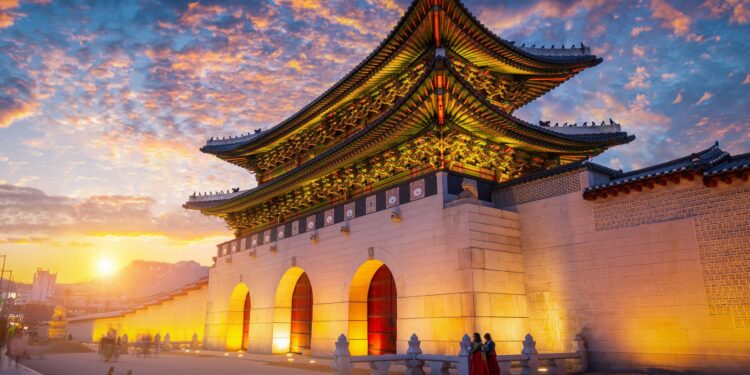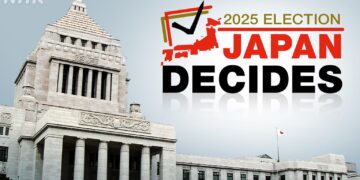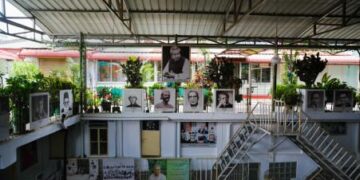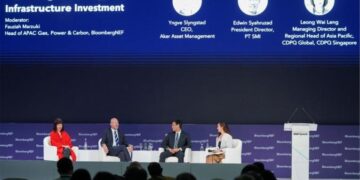South Korea’s Presidential Contender Kim Proposes Balanced Talks on U.S. Troop Funding
In a notable development within South Korea’s political arena, presidential hopeful Kim has voiced his readiness to engage in constructive negotiations concerning the financial responsibilities tied to the U.S. military presence on Korean soil. Against a backdrop of escalating regional tensions and intensifying debates over defense budgets, Kim’s comments may herald a new chapter in the discourse surrounding the enduring alliance between South Korea and the United States. This article explores Kim’s perspective, its potential impact on bilateral relations, and how it fits into the broader context of defense spending amid shifting geopolitical realities.
Kim Emphasizes Equitable Dialogue Over U.S. Military Cost-Sharing
As one of South Korea’s foremost presidential candidates, Kim has underscored his commitment to fostering fair and transparent discussions about how costs related to hosting U.S. troops should be allocated. Acknowledging the strategic significance of this military partnership for national security, he advocates for negotiations that respect both countries’ interests while safeguarding South Korea’s sovereignty.
Kim proposes moving beyond transactional arrangements toward a cooperative framework grounded in mutual respect and long-term strategic collaboration—an approach that resonates with many citizens concerned about fiscal fairness without compromising defense readiness.
- Clear Financial Transparency: Advocating for open disclosure regarding budgetary allocations linked to troop deployment expenses.
- Equitable Security Responsibilities: Encouraging shared accountability in countering regional threats such as North Korean provocations.
- Expanded Joint Military Initiatives: Supporting increased combined training exercises and interoperability programs between forces.
This stance aligns with growing public sentiment favoring balanced partnerships where economic considerations are weighed alongside security imperatives—a critical factor as Seoul navigates complex diplomatic waters ahead of upcoming elections.
The Broader Strategic Consequences of Revisiting Troop Cost Discussions
The willingness expressed by Kim to revisit financial arrangements concerning U.S. forces stationed in South Korea could signal an important recalibration within Northeast Asia’s security architecture. Domestically, it addresses widespread concerns over budgetary pressures stemming from hosting foreign troops; internationally, it positions him as a pragmatic leader open to renegotiation rather than confrontation.
This shift might prompt adjustments not only in bilateral cost-sharing but also influence wider diplomatic efforts involving North Korea and neighboring states like China and Japan—potentially opening avenues for renewed dialogue on denuclearization or peace initiatives through enhanced leverage derived from cost negotiations.
- Diplomatic Advantages: Flexibility on troop funding could serve as leverage during multilateral talks aimed at reducing nuclear threats or easing inter-Korean tensions.
- Evolving Regional Alliances: Changes here may inspire other Asia-Pacific nations to reassess their own military partnerships with global powers amid rising geopolitical competition.
- Sociopolitical Impact at Home: The proposal appeals particularly to voters prioritizing economic stability alongside robust national defense policies amid inflationary pressures affecting household incomes across South Korea (with inflation rates reaching approximately 3% year-on-year as of early 2024).
Tactical Recommendations for Fortifying US-South Korean Defense Collaboration Amid Financial Negotiations
The ongoing debate over cost-sharing necessitates comprehensive strategies designed not only to resolve fiscal disputes but also strengthen overall military cooperation between Washington and Seoul. Key measures include enhancing transparency mechanisms so both governments maintain aligned priorities while building trust essential for joint operations against emerging threats such as cyberattacks or missile tests by Pyongyang—which have increased by nearly 20% since last year according to regional security reports (2023-2024).
- Create Joint Oversight Committees: Establish dedicated bodies tasked with reviewing current expenditure frameworks while exploring innovative funding solutions like shared procurement programs or co-investment models ensuring long-term sustainability without disproportionate burdens on either side.
- Cultivate Domestic Defense Industry Partnerships:Aim at boosting collaboration between American firms and South Korean manufacturers through technology sharing agreements that can reduce costs over time—for instance, joint development projects similar to those seen recently in drone technology sectors globally.This strategy mirrors successful international models where local production lowers dependency risks while stimulating economic growth.
- Lauch Public Awareness Campaigns:Implement educational initiatives targeting citizens from both countries highlighting benefits derived from sustained alliance cooperation—such campaigns can help mitigate skepticism around troop presence costs by emphasizing shared security gains amidst evolving global challenges like China’s expanding naval capabilities or Russia’s activities near Eastern Europe.< / li >
By adopting these recommendations , policymakers can nurture a more resilient , adaptive partnership capable of confronting future uncertainties effectively . Such foresight is vital given recent developments including North Korea ’ s accelerated missile testing pace , which underscores urgency around maintaining credible deterrence backed by solid alliances .< / p >
Summary: Navigating New Frontiers In US-South Korean Defense Relations< / h2 >
To conclude , presidential candidate Kim ’ s openness toward revisiting financial commitments associated with American troops stationed domestically marks an inflection point within longstanding bilateral ties . His approach balances fiscal prudence against strategic necessity — potentially reshaping how Seoul manages its role within broader regional security frameworks . As election season approaches , observers will keenly watch whether these dialogues translate into policy shifts influencing not just defense budgets but also diplomatic postures vis-à-vis North Korea , China , and allied partners throughout Northeast Asia . Ultimately , this evolving conversation reflects deeper questions about sovereignty , alliance equity , and sustainable peacebuilding efforts amid one of today ’ s most volatile geopolitical theaters .< / p >














